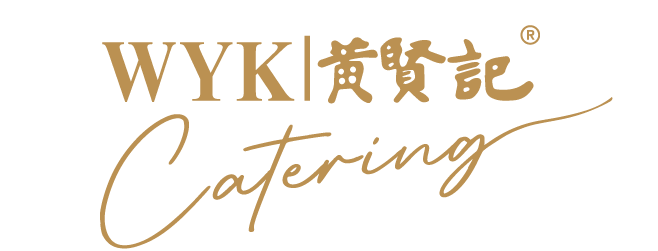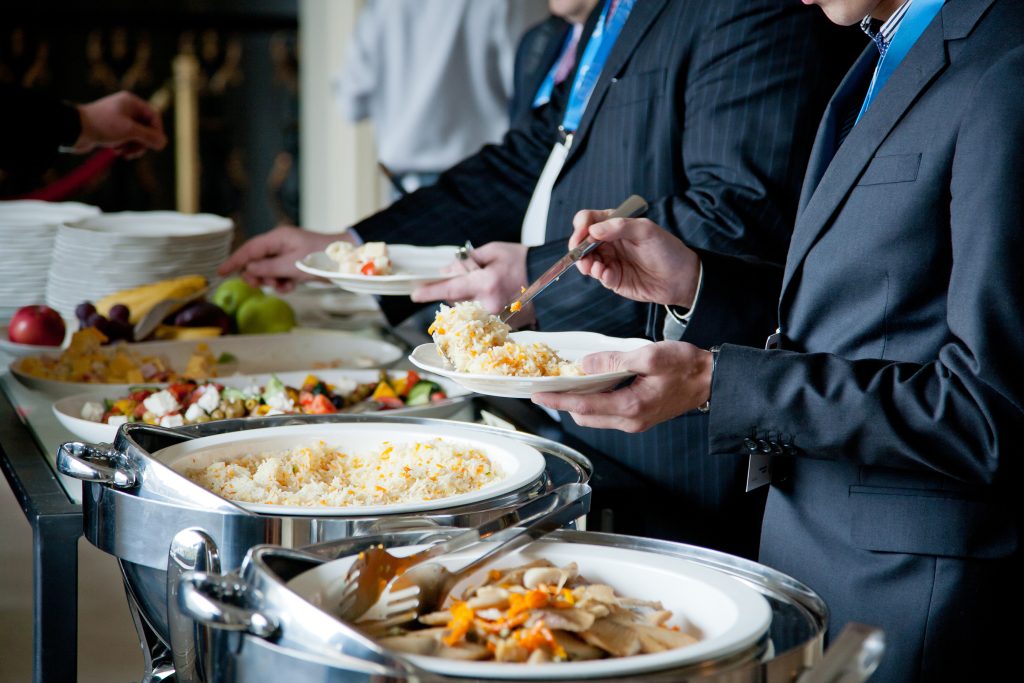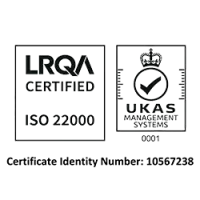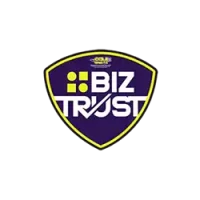Organising a successful corporate event in Malaysia goes beyond logistics—it also hinges on delivering high-quality food, smooth service, and a polished presentation. Whether it’s a business lunch, company seminar, festive gathering, or product launch, catering plays a vital role in shaping the guest experience.
With options like halal corporate catering, menu customisation, and professional setup, corporate catering services help align your event with your company’s brand and culture—turning meals into memorable experiences.
In this article

Why Corporate Catering Is Essential for Any Company Event?
Professional catering for corporate events isn’t merely about feeding guests and a convenience—it’s a reflection of your company’s values and attention to detail, as well as an essential way to convey professionalism and enhance guest engagement.
Saves time and reduces stress with professional food and service management
Supports productivity during long meetings and workshops
Enhances corporate branding through customised menus and setups
Offers inclusive options, especially when serving halal-certified meals to diverse teams
Choosing The Right Event Venue and Theme
One of the most important steps in planning a successful corporate catering event is selecting the right venue and theme. The venue sets the tone for your corporate event while the theme ties everything together—from food and ambiance to entertainment and guest experience.
Whether you’re planning a formal annual company dinner, a product launch, or a team building event, aligning the venue and theme with your corporate event goals, guest list, and company culture will elevate the overall experience and impact.

Product launch
Example: Glasshouse at Seputeh, Colony at The MET, Astana at Bamboo Hills, Bayswater at KLCC The Estate KL

Team-building or appreciation lunch
Keep the mood relaxed and casual with a garden-style picnic or colourful buffet setup featuring local flavours.
Example: IKAN Glampsite, Mutiara Hillhomes, Enderong Resort

Networking or client appreciation event
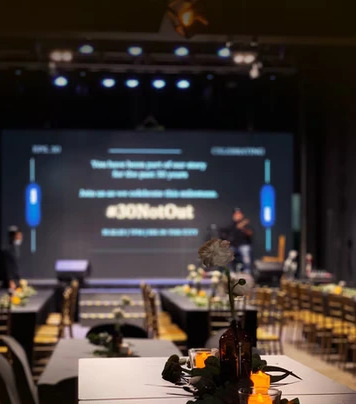
Corporate seminars or conferences

Product launch
Consider a sleek, minimalist setup that highlights your brand colours with clean backdrops and modern furnishings.
Example: Glasshouse at Seputeh

Team-building or appreciation lunch
Keep the mood relaxed and casual with a garden-style picnic or colourful buffet setup featuring local flavours.
Example: IKAN Glampsite

Networking or client appreciation event
Choose an upscale yet laid-back theme with ambient lighting, live background music, and small fusion bites. Example: The Grounds, KL
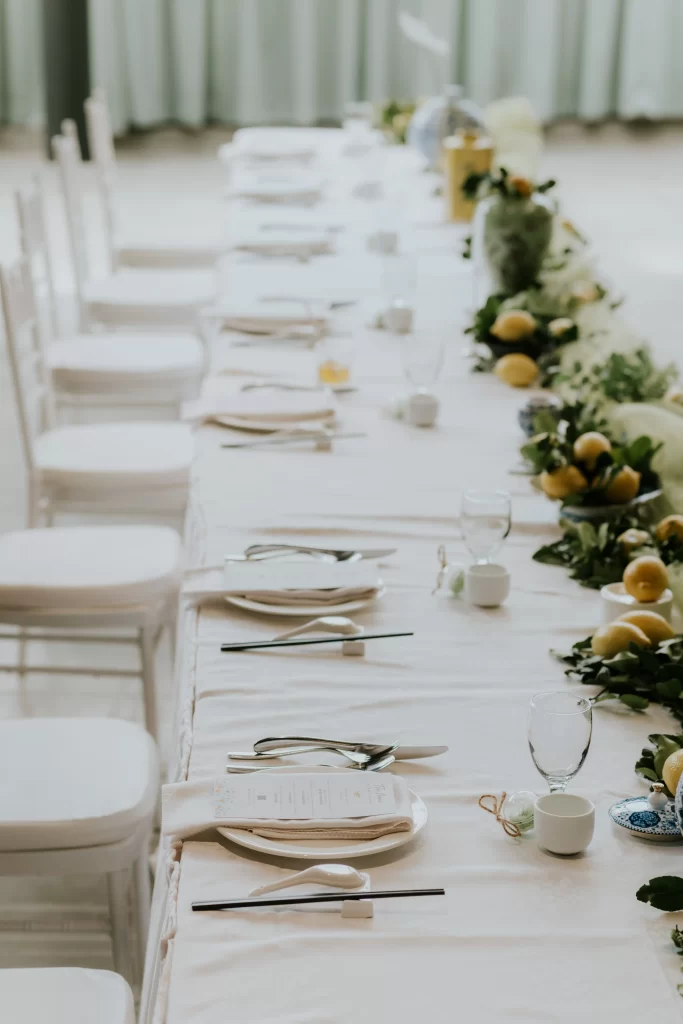
Corporate seminars or conferences
Aim for a clean, professional theme with efficient AV support and neutral tones.
Example: The Luna Grand Ballroom
Things to Consider When Choosing a Corporate Catering Venue
-
Location & Accessibility
Ensure the venue is easy to find and accessible via major highways or public transport. -
Capacity & Layout Flexibility
Choose a space that fits your guest count without being too cramped or too empty. -
Catering Logistics
The venue should support efficient food service. Look for features like staging zones, prep areas, equipment access or event spaces designed with catering flow in mind. -
Theme Compatibility
Think about how easy it is to decorate the venue to match your corporate event theme. -
Halal Catering Requirements
If your event includes guests with halal, vegetarian, or allergy-related dietary restrictions, make sure both your catering provider and venue can accommodate these needs. -
Plan and book early.
Popular venues and corporate catering slots tend to be reserved months in advance. For mid-to-large scale events, it’s best to secure a date at least 2–3 months ahead. -
Check AV Capabilities
If your event includes speeches, product launches, or presentations, confirm whether the venue has built-in AV equipment like projectors, microphones, and proper lighting. -
Factor in weather.
Outdoor events require backup plans such as covered sections, tents, or alternate indoor spaces in case of rain or heat.
By carefully choosing the right combination of venue, theme, and corporate catering style, your corporate event becomes more than just a gathering—it becomes a memorable brand experience.
Understanding Your Guest List
One of the key factors that can make or break your corporate catering event is how well the food and dining experience align with your guest’s expectations.
In corporate settings, guest lists are often diverse—ranging from C-level executives and international partners to team members from various cultural backgrounds and dietary lifestyles. Choosing a one-size-fits-all menu risks alienating certain guests or leaving them with limited options.
Taking the time to understand dietary restrictions, culinary preferences, and cultural sensitivities not only shows thoughtfulness but also enhances your company’s image as a considerate and inclusive brand.
Consideration
What to Think About
Catering Solutions
Dietary Restrictions
Are there guests who require halal, vegetarian, vegan, or gluten-free options?
Choose a certified halal corporate catering; offer labelled stations for allergens or preferences.
Cultural Backgrounds
Are you hosting a multi-ethnic Malaysian crowd or international partners?
Offer a diverse spread—Malay, Chinese, Indian, and fusion dishes—to appeal to various palates, such as festive catering.
Meal Style Preferences
Will your guests prefer a formal sit-down meal or a casual buffet?
Tailor the catering format (buffet, plated, etc) to match the tone and formality of the event.
Age Demographics
Are your guests younger executives or a mixed-age crowd?
Consider modern fusion menus for younger guests and traditional comfort foods for older generations.
Event Timing
Is the event during lunch, high tea, or dinner?
Align your menu with the time of day—light bites for brunch, heavier mains for dinner.
Event Planning Tips for HR & Corporate Event Planners
Always gather guest information early. Consider pre-event surveys or RSVP forms to capture:
Dietary restrictions
Preferred cuisines
Religious food needs (e.g., halal)
Seating or meal format preferences
Having this data upfront allows you to work with your caterer to design a menu that’s inclusive, satisfying, and tailored to your guests’ needs.
By truly understanding your guests and catering to their preferences, you set the stage for a thoughtful and enjoyable dining experience that reflects well on your company and strengthens your brand’s hospitality image.
Types of Corporate Catering Services for Business and Corporate Events
Every business event has its own vibe and objectives—which is why it it important to match your corporate catering approach to the occasion. Whether it’s a casual office lunch or a formal business event, selecting the right corporate catering style plays a big role in shaping the guest experience. Your choice should reflect the event’s purpose, audience size, and level of formality.
Here are a some popular corporate catering styles:

Banquet Catering
Banquet style full-service catering is ideal for formal business events, annual dinners, or high-profile launches, offering setup, serving staff, and clean-up. It ensures a polished experience where guests are attended to throughout the event so hosts can focus on the agenda, not logistics.

Buffet-style Catering

On-site Cooking Setups
Bring energy to your event with optional live cooking stations, where chefs prepare dishes on-site instead of in the central kitchen. Guests can enjoy meals served hot and fresh, while also experiencing the entertainment of seeing their food crafted in real-time, creating a memorable dining experience for all.

Fusion Morsel Catering
Fusion Morsel Fusion Morsel catering, or also known as cocktail-style catering or canapés catering, is perfect for informal gatherings or brand launches where a full meal isn’t necessary. Guests enjoy light bites and finger foods with drinks, creating an elegant atmosphere that encourages mingling.

Office catering
Ideal for team lunches, training sessions, or townhalls. Meals are typically pre-packaged, allowing for quick and easy distribution. For groups of 5 to 30 people, you can opt for mini buffet catering; a ready-to-serve option that’s practical yet easy to coordinate.

Plated Catering
Plated catering offers a structured and elegant dining experience, with each course served directly to guests at their seats. This format is ideal for formal corporate functions such as appreciation dinners or executive meetings, where consistency, presentation, and pacing are essential.

Centerpiece Selection
Centerpiece enhances the flow of service by presenting multiple dishes at once, creating a visually striking focal point that offers guests variety without waiting, while also creating a warm, shared experience.
For events that aim to impress or engage, live cooking stations and themed catering setups can add flair and interaction. From chef stations for carving meats to noodle or dessert bars, these setups offer an immersive dining experience. They’re well-suited for open houses, exhibitions, and company milestone celebrations.
Each style has its own strengths depending on the type of event being planned. Factors such as budget, venue layout, duration, and guest preferences should guide the final decision. Ultimately, the catering format should support your event goals while ensuring a memorable experience for attendees.
Have more questions about options?
Crafting the Perfect Corporate Catering Menu
Designing the right corporate catering menu is one of the most important aspects of planning a successful business function. Whether it’s a formal business lunch, a team appreciation event, or a product launch, the food served should reflect the nature of the occasion, suit your guests’ preferences, and support the overall event flow.
Popular Menu Styles for Corporate Catering in Malaysia

Malaysian & Cultural Menus

Fusion & International Menus

Halal Corporate Catering

Western Menus
Once you’ve selected your preferred cuisine style, it's time to build a balanced menu across key meal categories:
Starters & Appetizers
Appetizers set the tone for the meal, ranging from individual starters to shared platters. They ease guests into the event, pair well with networking sessions, and create a welcoming start to the dining experience.
Sides & Complements
Side dishes bring balance and variety to the menu, enhancing the main courses with vegetables, grains, sauces, and other flavourful accompaniments that round out the meal.
Main Courses
The centerpiece of your menu, main courses should offer a mix of meats, carbs, and plant-based options. A thoughtful selection ensures broad appeal and keeps guests satisfied.
Desserts & Beverages
Sweet treats and refreshing drinks complete the dining experience. From indulgent desserts to fresh juices, coffee, or mocktails, this combination leaves a memorable finishing touch to your event.
Menu personalisation can greatly enhance the event experience, a key part of corporate catering success.
That being said, an effective corporate catering menu goes beyond taste—it should accommodate various dietary needs, complement the format of the event, and align with the company’s culture. This is especially true for events involving diverse attendees or requiring a blend of casual and professional tones.
Hence why it is important to choose the right corporate catering service that understands your vision and can meet your specific needs—ensuring that both the food and service reflect your company’s image and cater to your guests’ expectations.
Tips for Choosing the Best Corporate Catering Service

To ensure your next event runs smoothly, here’s what to look for in a corporate caterer:
- Experience with corporate catering events of various sizes and formats
- Halal certification to meet your guests’ dietary requirements
- Menu variety and flexibility for different themes or occasions
- Strong logistics and service support, including setup and staffing
- Positive client reviews and a proven track record in the industry
Common Challenges in Corporate Catering
Planning a corporate event goes beyond just picking a menu. There are many behind-the-scenes factors that can impact your catering experience—some of which you may not consider until the day of the event.
That’s why it’s essential to choose a corporate caterer who can anticipate and adapt to these situations. Below are some of the most common catering challenges and how an experienced provider can help you manage them seamlessly:
Challenge
Solution
Last-minute guest count changes
Experienced caterers offer flexible menu adjustments and dynamic portioning to accommodate changes without compromising quality.
Tight venue logistics
Corporate catering teams coordinate schedules, use compact setups, and liaise with building management for smooth operations.
Venue restrictions (No Open Flame, Space Limits)
Customised buffet layouts, eco-friendly packaging
A reliable corporate caterer offers cold or pre-prepared options, creative buffet layouts, and eco-friendly packaging to suit the environment.
Dietary diversity
With multicultural workforces, dietary diversity is essential. Halal corporate catering, vegetarian, vegan, and allergen-free options ensure all employees feel included and respected.
Tight timelines
Business events often run on strict schedules. A trusted office lunch catering provider will align food service timing with your agenda and prep everything in advance—whether for breakfast meetings, tea breaks, or full-day seminars.
Limited on-Site Facilities
Some corporate venues lack kitchen space or prep areas. Professional catering teams come fully equipped with portable heating units and ready-to-serve packaging for seamless service.
Final Checklist for a Successful Corporate Event
Before sending out those invites, make sure your catering is on point. Here’s your quick pre-event catering checklist:
Confirm guest count and dietary needs
Finalise your preferred menu and format (buffet, banquet, plated, etc.)
Arrange venue access and setup needs
Confirm event timing and delivery logistics
Coordinate with your chosen caterer’s service team
Frequently Asked Questions About Corporate Catering
What is a typical budget per person?
Prices vary, but it’s crucial to define your budget early. Many caterers offer tiered catering packages based on guest count, cuisine type, and service style. Comparing quotes ensures you receive good value.
When should I book corporate catering?
While deadlines vary, it’s advisable to book within a month or at least 7 days before your event.
How much should I order for my event?
Catering orders are typically planned on a 1:1 basis — meaning one serving per guest. For example, if you have 100 guests and order satay at a 1:1 ratio, you’ll receive 100 sticks.
Can the menu be customised?
Absolutely. Most corporate caterers provide flexible menu options to accommodate brand themes, dietary preferences (like halal corporate catering), and cultural touches.
Why Choose WYK Catering for Corporate Events?
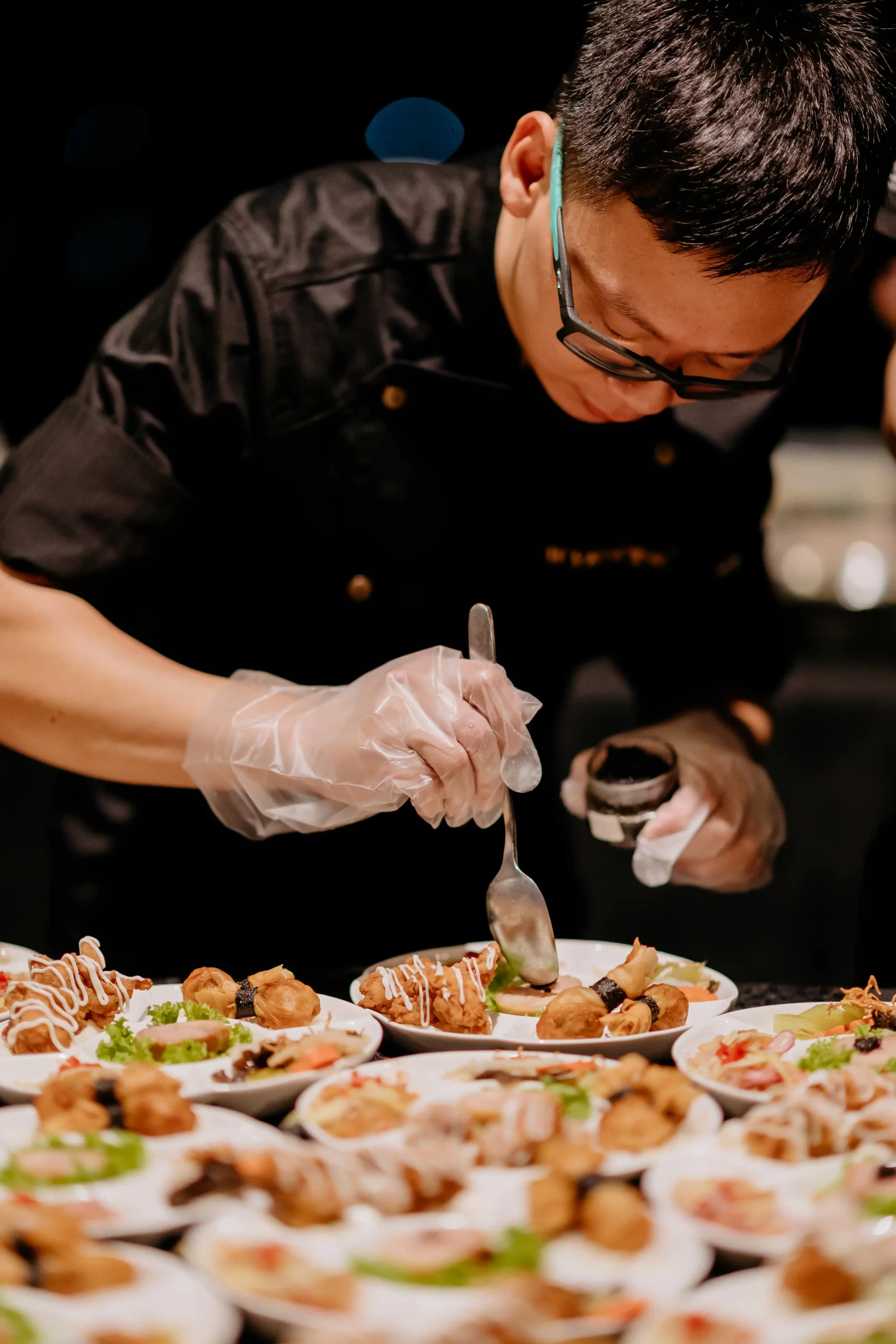

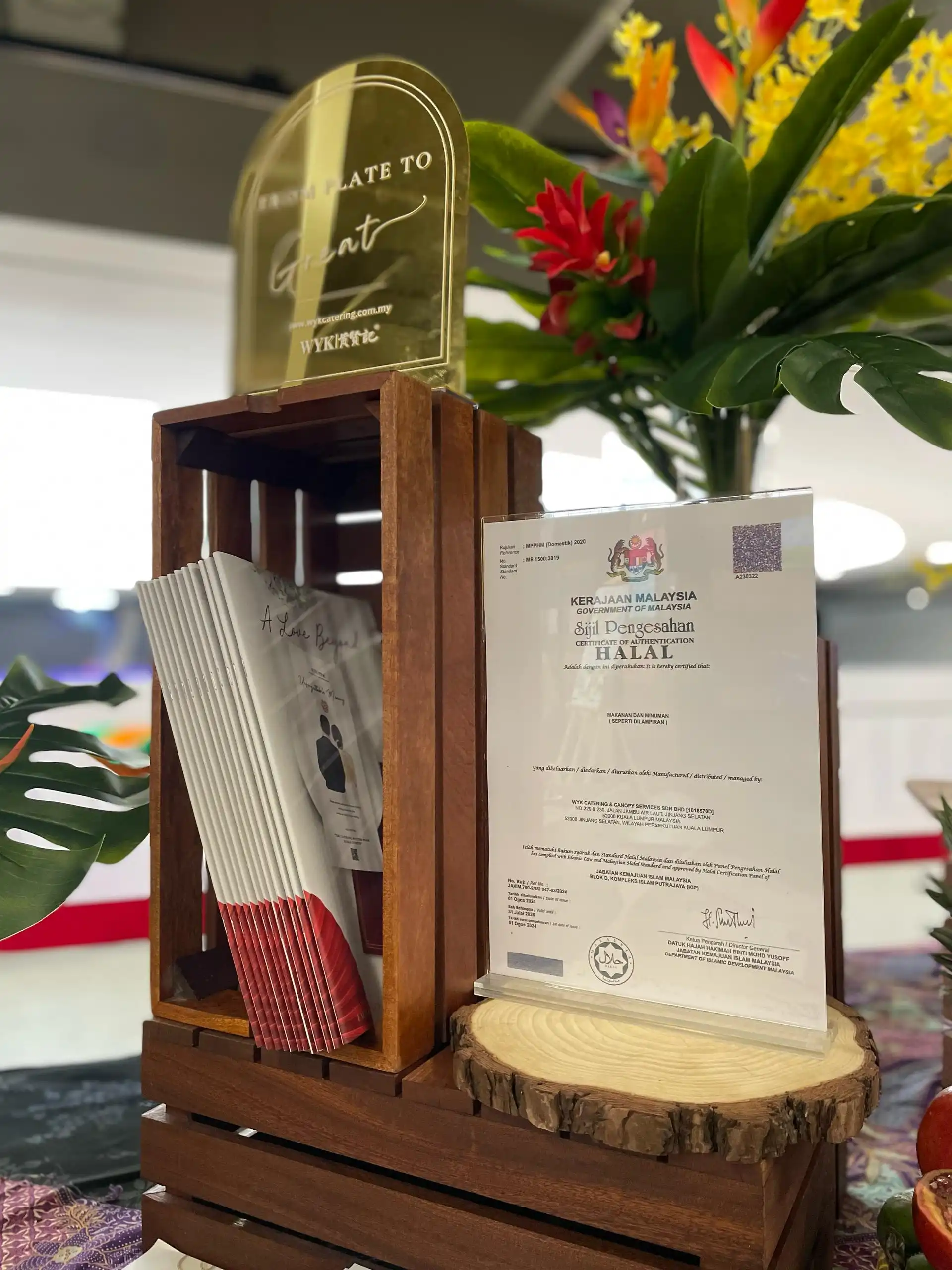
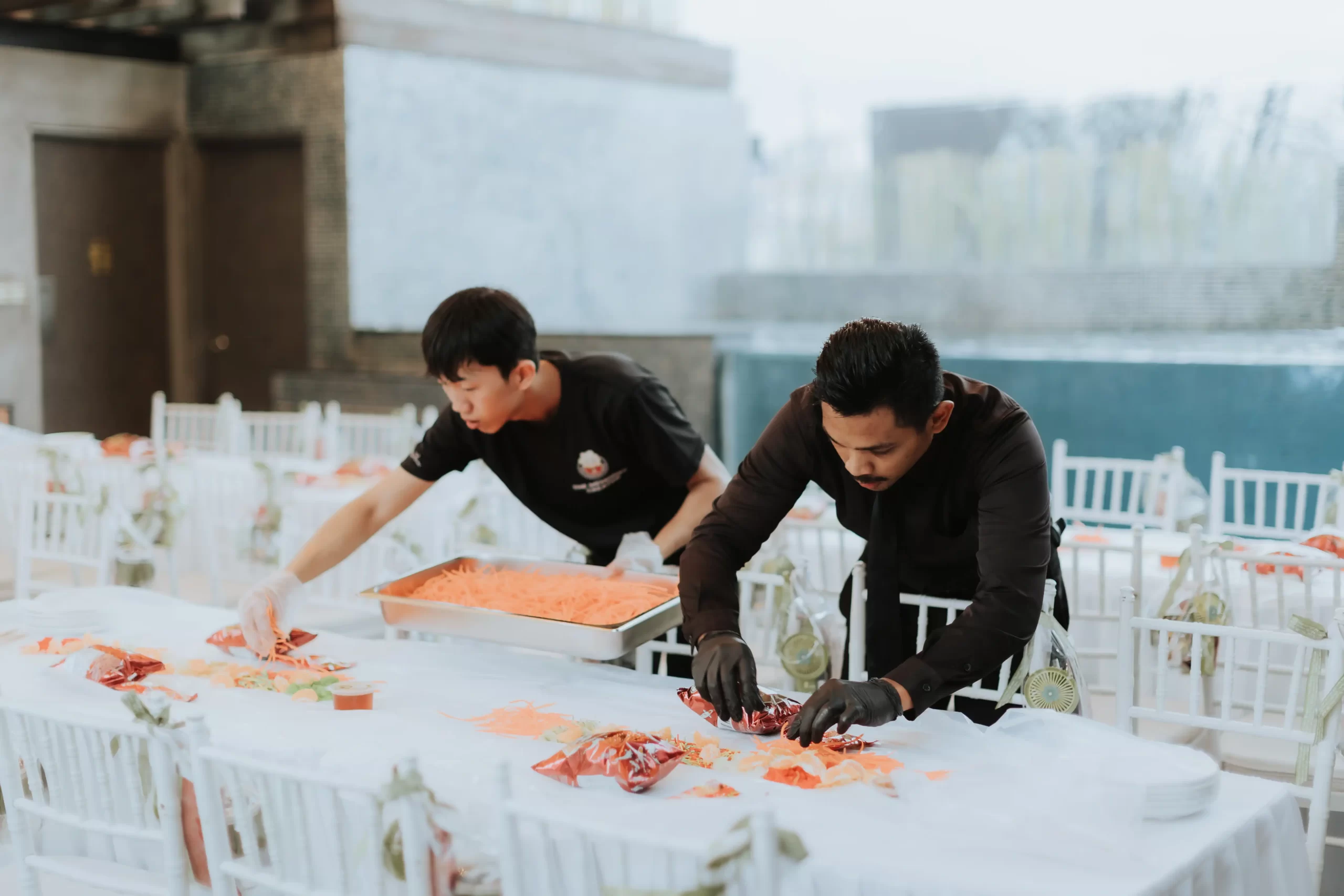
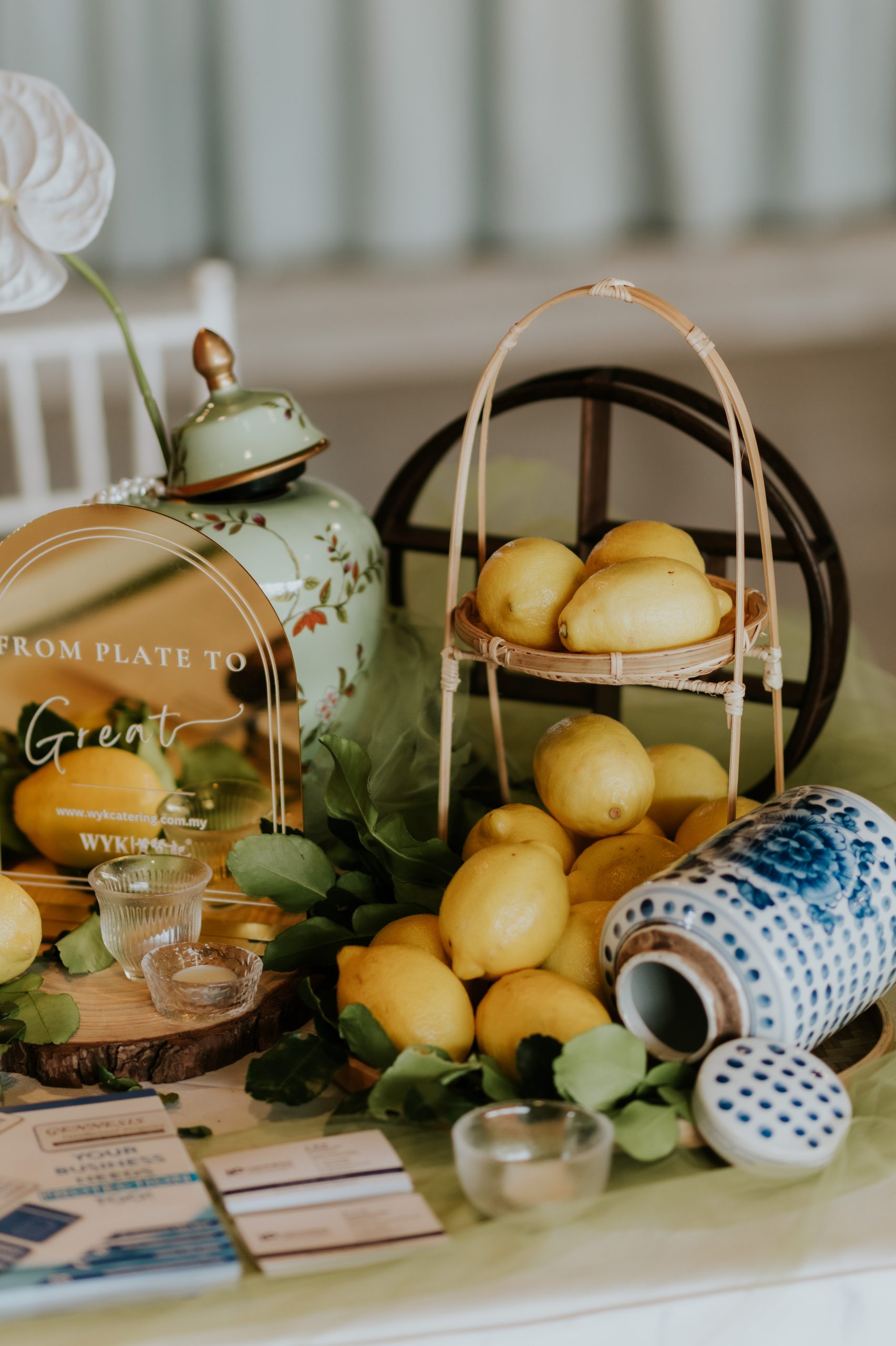
Learn more or explore our full services.
